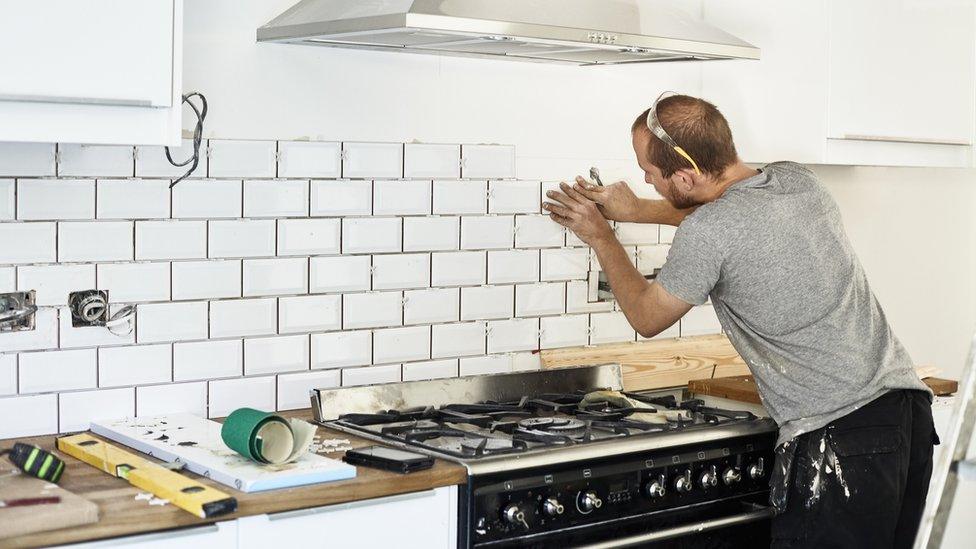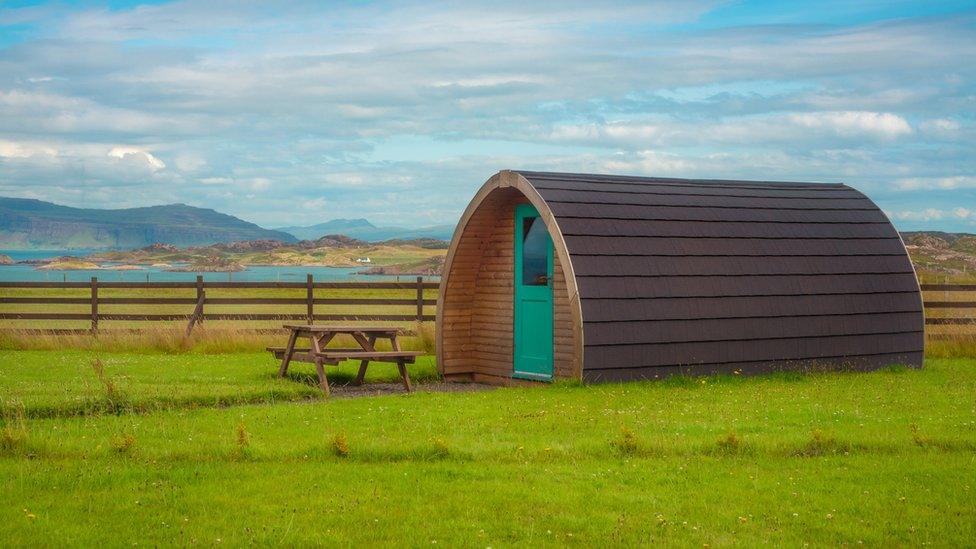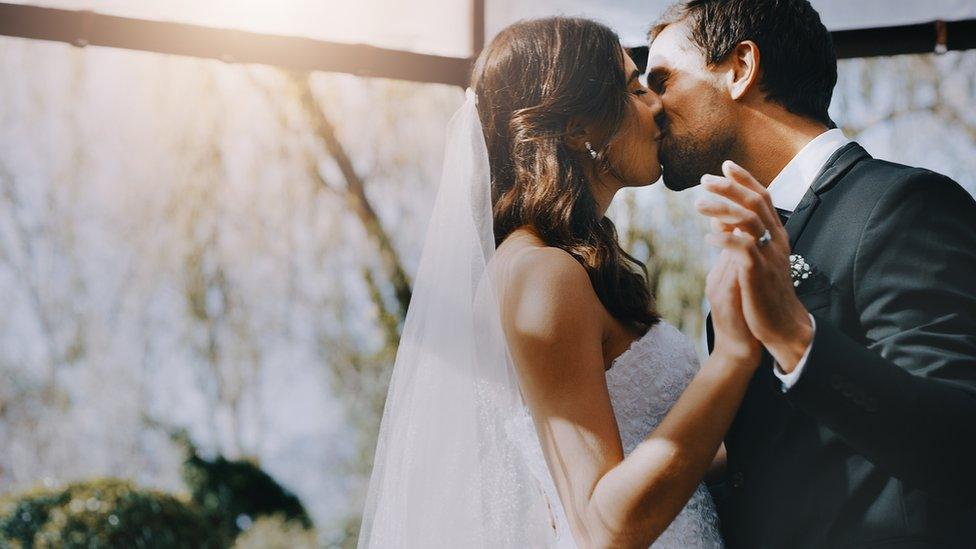What are the rules in the new lockdown areas?
- Published
Coronavirus restrictions have been reintroduced in seven of Scotland's biggest council areas, covering more than 1.75 million people. Residents in Glasgow, North and South Lanarkshire, East and West Dunbartonshire, Renfrewshire and East Renfrewshire are unable to make indoor visits to other households because of a rise in cases. Here are the answers to some questions being asked.
Can my builder still come to my house?

Yes - while the rules forbid those who live in the area from meeting up with people from another household inside their private home, workers can still come inside.
The guidance says they are allowed in to carry out work such as repairs, installations and deliveries.
Can carers still visit?
Yes, regulated care providers can still enter a home if it's to provide health and social care to someone who needs it.
But a risk assessment should have been carried out, and it's crucial that social distancing measures are adhered to.
The guidance also says it's really important that PPE is used, and that where masks are required that they are worn properly.
Members of the public who are providing essential support or delivering care (this includes things like delivering shopping) can continue to make visits, but should be very cautious - it's important that hygiene precautions and social distancing measures are strictly adhered to.
What does this mean for my holiday plans?

If you don't live in the area, but were there (for example, visiting family or on holiday) when the restrictions came into force you don't need to leave.
However, you should be extra vigilant when you leave the area.
If you were planning to visit self-catering accommodation in an unaffected area with different households from the affected area then you should not go until these restrictions have been lifted.
Will my childcare arrangements be affected?
No, they shouldn't be. Children should continue to attend school and nursery, and informal child care (e.g. grandparents caring for their grandchildren) is not affected by the new restrictions - as long as the children being looked after are from the same household.
Children whose parents do not live together can stick to their normal arrangements.
Can my wedding go ahead?

It depends. The guidance says marriages and civil partnerships held indoors in private homes should not take place under these restrictions.
But marriage ceremonies being conducted outdoors or in indoor public spaces can still go ahead - in line with the pre-existing restriction that no more than 20 people should be present.
You can still go to funerals too, but you still have to comply with the guidance which remains in place for the rest of Scotland.
The new restrictions don't currently change the arrangements in place across Scotland for places of worship, but this will remain under review.
Can I still see my friends and family?
You can still meet with people from other households outdoors (so it's ok to see them in the garden).
It's also allowed to see them in pubs, bars, cafes and restaurants.
However, you should still follow guidance that applies to the rest of Scotland when meeting up outside or within hospitality venues.
If you are part of an extended household, you can keep meeting indoors - but you should be mindful of hygiene.
Should I start shielding again?
Earlier in the pandemic, those who were deemed to be most at risk if they contracted coronavirus were sent a letter which advised them to shield.
But shielding was "paused" on 1 August, and those who were previously shielding are now expected to follow the same rules as the general public. This has not changed.
However, the government has said as with all its advice on shielding it will keep the issue under review.
People who received a shielding letter should "strictly follow physical distancing and hygiene measures and may also want to think about the levels of risk associated with work and daily activities", the guidance adds.

